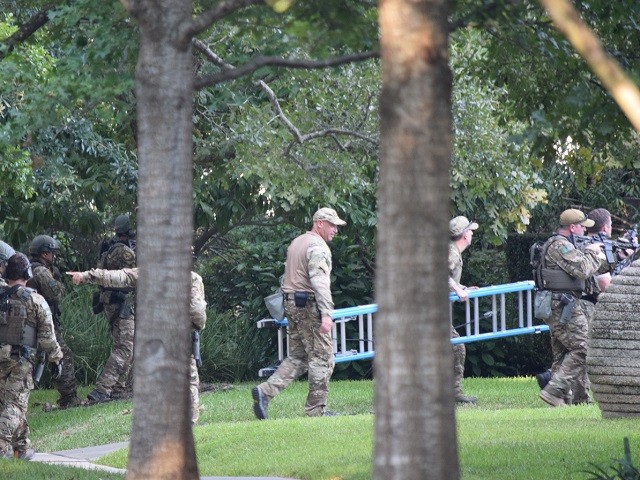
The moral of this story is: “If the Feds want a piece of your ass, they are going to get it.
The little prick that is the object of the story has a penchant for building weapons of mass destruction, nerve gas and explosives. When he was twenty-two the Feds raided his house and found a lab where he was attempting to make nerve gas and had already produced a viable explosive. He was charged with storing explosives “not in conformity with regulations and given probation.
In the most recent incident a Houston Park Ranger interrupted his attempt to blow up a Civil War statue. The arrest led to another search warrant and more explosives. Guess probation taught him a lesson. This time the FBI got creative. The charge:
Attempting to damage property receiving financial assistance.
(f)(1)Whoever maliciously damages or destroys, or attempts to damage or destroy, by means of fire or an explosive, any building, vehicle, or other personal or real property in whole or in part owned or possessed by, or leased to, the United States, or any department or agency thereof, or any institution or organization receiving Federal financial assistance, shall be imprisoned for not less than 5 years and not more than 20 years, fined under this title, or both.
18 U.S. Code § 844 – Penalties
In may instances an element of the offense requires that the government prove a Federal nexus that is: crossing state lines, using or affecting a public utility, using an item that traveled in interstate commerce, involved a Federal facility or targeted a federal employee. My reading of the statute says that possession of scheduled or dangerous drugs, explosives, weapons of mass destruction are Federal violations, per se.
I suspect that the minimum mandatory sentence for possession of explosives is higher than the five year minimum mandatory sentence called for in USC 844 (f)(1). My knee jerk reaction is that the charge is convoluted and illustrates the problem of too many laws. On the other hand, it allows the prosecutor a degree of flexibility. I think that the Texas Penal Code attempts to accomplish what the Feds have forgotten.
Texas Penal Code Section 1.02 Objectives of Code
The general purposes of this code are to establish a system of prohibitions, penalties, and correctional measures to deal with conduct that unjustifiably and inexcusably causes or threatens harm to those individual or public interests for which state protection is appropriate. To this end, the provisions of this code are intended, and shall be construed, to achieve the following objectives:
Texas Penal Code
(1) to insure the public safety through:
(A) the deterrent influence of the penalties hereinafter provided;
(B) the rehabilitation of those convicted of violations of this code; and
(C) such punishment as may be necessary to prevent likely recurrence of criminal behavior;
(2) by definition and grading of offenses to give fair warning of what is prohibited and of the consequences of violation;
(3) to prescribe penalties that are proportionate to the seriousness of offenses and that permit recognition of differences in rehabilitation possibilities among individual offenders;
(4) to safeguard conduct that is without guilt from condemnation as criminal;
(5) to guide and limit the exercise of official discretion in law enforcement to prevent arbitrary or oppressive treatment of persons suspected, accused, or convicted of offenses; and
(6) to define the scope of state interest in law enforcement against specific offenses and to systematize the exercise of state criminal jurisdiction.
I know that if I keep looking I will find Catch-22 embedded in the United States Code somewhere.